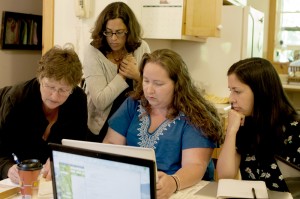College students these days are incredibly well versed in the post-grad talk. I can’t count on my hands how many times I’ve received the “good luck with that” look after I tell people I’m an English literature major with a studio art minor. And, I must admit, for good reason.
It’s hardly a secret that it’s a tough time to find employment. There are expectations of students entering the job market that simply weren’t there in the past. Along with a degree, internship experience has essentially become a necessary precursor to full-time employment. In an ideal situation, an internship not only improves one’s position entering the workforce, but also teaches valuable skills in the field and gives a student the opportunity to work with knowledgeable and supportive superiors.
But as has been proven by their recent presence in the media, internships don’t always provide what they should. Former interns are suing companies for, essentially, working them as full-time employees without a paycheck; these include lawsuits against Fox Searchlight and Gawker.
Other students are qualified but can’t afford to take on full-time unpaid internships to begin with, especially if they can’t rely on the “Bank of Mom” necessary to cover the additional expenses of living in a city.
In my two internship experiences, both with Fresh Dirt Ithaca magazine last summer and Swenson Book Development this summer, I have found supportive environments where I have felt intellectually stimulated and valued as a member of a team, not just a gopher. I have developed my skills in writing and editing and improved my understanding of the publishing field, and I now feel significantly better prepared to enter the workforce following my final undergraduate year. I have been lucky.
And why is that? Why have my experiences been so overwhelmingly positive when the common experience of many of my friends – and the common understanding of internships – is hard work that one isn’t compensated for intellectually or financially? 
Don’t get me wrong, an internship with a big-name company can be a valuable experience and a powerful foot in the door for employment. But don’t allow the influence of a name to make you overlook the valuable opportunities with smaller companies within your own community. I’ve had the chance to work with real people who show an interest in my future and appreciate my contributions. I’ve been a valued voice – not a coffee getter. While small-town opportunities may not have the glitz and glamour of big names and big cities, my experiences have provided me with a greater level of knowledge, confidence, and work ethic that I think will speak louder than a familiar name on a resume.
Plus, I get to spend my summer in the Finger Lakes, which isn’t half bad.

It has been a pleasure to have you, Ava Russell, as an intern this summer. Your editorial talents, critical thinking skills, good humor, and strong work ethic serve you well in whatever you do. Thanks for being part of our team this summer!